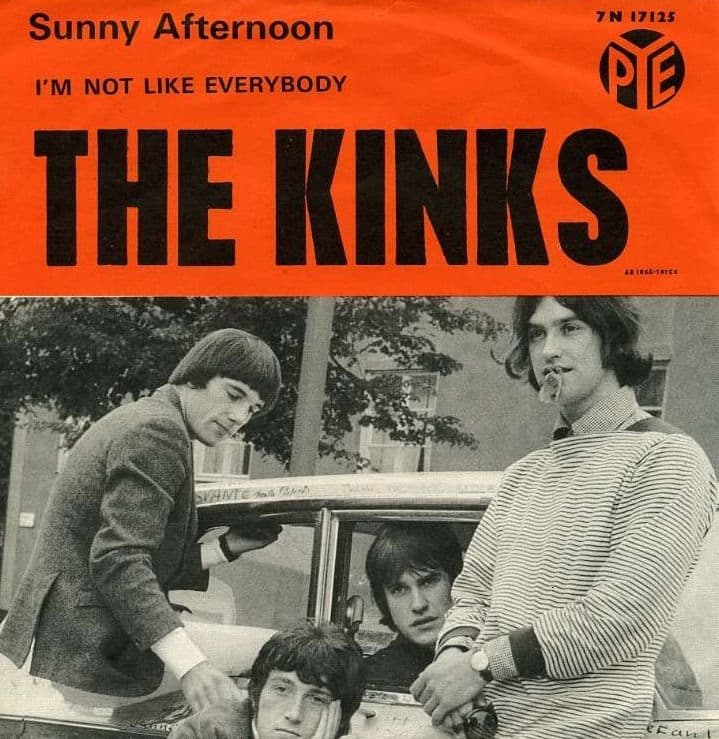
The Kinks – Sunny Afternoon: A Breezy Lament for the Aristocratic Downfall
Sunny Afternoon, a masterstroke of social satire by The Kinks, captures the languid essence of a summer’s day while painting a portrait of discontent through the eyes of a fallen aristocrat. Written by Ray Davies and released as a single in 1966, this song marked a turning point in the band’s stylistic evolution, signaling a move away from their early power-chord-driven rock to a more narrative, observational songwriting style steeped in British culture and wit.
At its core, Sunny Afternoon is both a whimsical ode to leisure and a biting commentary on class and wealth. The song’s protagonist, an idle member of the upper class, laments the loss of his fortune to taxes imposed by the British Labour government under Harold Wilson. Unlike The Beatles’ Taxman, which shares similar thematic concerns but is sung with a direct anger, Sunny Afternoon approaches the subject with ironic detachment. “The tax man’s taken all my dough / And left me in my stately home,” croons Davies with a mock air of resignation.
This perspective, however, is far from sympathetic. The protagonist’s woes are framed within the absurdity of his privilege—he still enjoys the titular “sunny afternoon” and has the luxury of escape from life’s real hardships. His complaints are undercut by his obvious indifference to others, highlighted in lines like “And I love to live so pleasantly / Live this life of luxury.” This duality—between leisure and decline—creates a tension that makes the song as compelling as it is ironic.
Musically, Sunny Afternoon is a perfect match for its lyrical themes. Its mellow, baroque-inspired arrangement is reminiscent of British music hall traditions, with Davies’ wistful vocals gliding over a descending bassline and an understated shuffle beat. The laid-back melody mirrors the indolence of its protagonist, while subtle instrumentation, including the use of a piano and a softly strummed acoustic guitar, reinforces the song’s breezy tone.
The Kinks’ choice to move in this direction was bold for a band known for their raw, aggressive early hits like You Really Got Me and All Day and All of the Night. With Sunny Afternoon, they embraced a new, distinctly English sensibility, leading to the creation of albums like Face to Face and The Village Green Preservation Society, which would cement their reputation as pioneers of storytelling in rock music.
The song’s success was immediate and far-reaching. It topped the UK Singles Chart and became an anthem of the summer of 1966, its gentle irreverence resonating with a populace weary of austerity and social upheaval. Beyond its commercial success, Sunny Afternoon remains a cultural touchstone, a timeless piece that captures a particular moment in British history while transcending it with its universal themes of loss, irony, and reluctant adaptation.
Ray Davies’ genius lies in his ability to craft a song that is as entertaining as it is thought-provoking. Sunny Afternoon may seem like a light-hearted ditty on the surface, but beneath its sunny exterior lies a sharp critique of entitlement, privilege, and the complexities of societal change. It stands as a testament to The Kinks’ artistic evolution and their place as chroniclers of a uniquely British experience, cementing the song as one of their most enduring masterpieces.